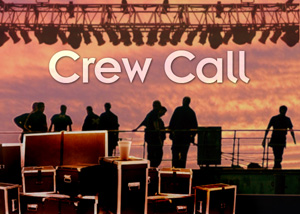A More Perfect Union
By Joel Rollins
Of all of the relationships in our industry, none is more important, or more misunderstood, than the relationship between unions and audiovisual suppliers. This relationship is as shrouded in myth as a Greek tragedy. In fact, the greatest sources of trouble are the misconceptions on both sides. Sadly, misunderstandings can also be expensive on both sides of the equation. Therefore, I thought it would be good to address them here.
First, let’s address the myths:
- Unions are deliberately difficult, and seem to exist to challenge the right of the audiovisual supplier to work with their clients.
- Independent audiovisual suppliers are out to cheat the union of work that is guaranteed to them by contract.
Those are the myths. The truth lies somewhere in between them.
First, it is important to acknowledge that sometimes there are difficulties. However, more of these difficulties result from the different configuration and purpose of the two organizations than from any deliberate malice. Often, these difficulties result from the two sides misunderstanding each other, or their failure to take appropriate actions to prevent misunderstandings. These faults lie on both sides of the table.
Let’s start with an illustration of the stereotypical attitude of the audiovisual supplier towards in-house unions in a venue.
An AV supplier walks into a bar…
In the dark bar, rooted to a stool he never seems to leave, is the head of the local stagehands union. He sips his cheap beer, and growls indifferently as the AV supplier enters. Seeing him, the AV supplier asks, “Hey, how many convention center stagehands does it take to change a lightbulb?”
The stagehand just sips his beer, and jerks his thumb at another guy seated farther down the bar. It’s the head of the local electricians union. The stagehand growls, “We don’t change light bulbs — it’s their work.”
So the A/V guy asks the electrician, “Hey, how many convention center electricians does it take to change a lightbulb?” The electrician answers in a surly voice, “Eight. You gotta problem with that?”
But before the A/V guy can answer, the stagehand growls, “Just remember it takes one of ours for every one of theirs.”
However, while that story is being told by the AV guys in the booth, the stagehands and electricians are on the loading dock, smoking as usual, and telling the story of the AV supplier trying to sneak a semi-load of equipment onto the floor by passing it through a bathroom window one piece at a time.
The misunderstandings have a couple of real sources:
First, think about the differences in the basic work format of the two groups. The unions typically serve a facility, or geographical location. They provide services to everyone who comes into that venue. The suppliers follow clients. They are not rooted to a particular location, and simply want to serve the client wherever they go.
Therein lies the rub.
Also, remember that the union is essentially a political organization, chartered to serve its member workers. Unions have protected working conditions in America for many years, regardless of what you think about their current position in the workplace.
In organized venues, they typically establish rates for the various jobs, policies regarding crews and hours, and in most cases have a very defined working agreement with the venue over what work their members are entitled to. They typically adhere to either a strict or modified form of a working agreement format set out by their national headquarters. Usually in a contracted venue, the management of the venue has very little authority to make exceptions to these agreements — they can only ask.
These contracts are usually very standard and straightforward, if a bit long in some instances. However, because they are a political organization with some power in the venue, there can be an element of bread-and-circuses voting among the local rank-and-file.
On the other hand, the AV supplier is chartered to produce a profit — period. They go where the client goes, work the hours and jobs the client needs worked and, in my experience, pay very little attention to rules or policies because they are, for the most part, private, entrepreneurial companies. It’s that typical undefined “whatever it takes” style that has a tendency to aggravate venue unions… especially when they either don’t bother to understand the rules or deliberately try to get around them.
I have been on both sides of this conflict, at many points in my career. Let me tell you the plain and simple truth: NOBODY wins. Especially because the argument will almost certainly involve the end client in some way. At the very minimum, it’s going to wind up costing them money. At the worst, they will have to participate in an argument among their suppliers during a time they are already confused and stressed — they’re trying to hold an important event.
So here are some very simple procedures for avoiding these kinds of problems:
AV suppliers: Meet with the unions early! Take all the available information about your show. Get the entire working agreement and go over it point by point. Do this while going over your show, making sure that you understand which rules will apply to the things that you are doing. And make sure that at least one of the union personnel in that meeting will be somebody in charge on the day of the event.
Note: The oldest trick in the book is to not do this so that you can claim ignorance on the day of and try to get around the rules. It never, ever, ever works. Also note that if you need exceptions to the working agreement, such as operating positions for your people for specialized equipment, this is the time to negotiate them. You will not get them on site on the day of the show.
Unions: Be forthcoming about explaining your working agreements to incoming suppliers. Don’t let them be able to claim that you did not explain something to them. And, if your local has a BA or senior head who seems to have to throw the book at clients on-site a lot, get rid of him. He is not doing the job of explaining these things upfront. If you have a head of department or BA who brags about the additional charges he got on site on the day of, elect someone new. These people are costing you future business. And, just as a good working practice, remember that you are there to secure the work for your members and to assist the client in having a good show.
 We’ll address these things a little more in an upcoming article andon the blog. In the meantime, be sure to pay attention to scheduled breaks for the crew. And a “Win with Hoffa” button wouldn’t hurt.
We’ll address these things a little more in an upcoming article andon the blog. In the meantime, be sure to pay attention to scheduled breaks for the crew. And a “Win with Hoffa” button wouldn’t hurt.
rAVe Rental [and Staging] contributor Joel R. Rollins, CTS, is general manager of Everett Hall Associates, Inc. and is well known throughout the professional AV industry for his contributions to industry training and his extensive background in AV rental, staging and installation. Joel can be reached atjoelrollins@mac.com






